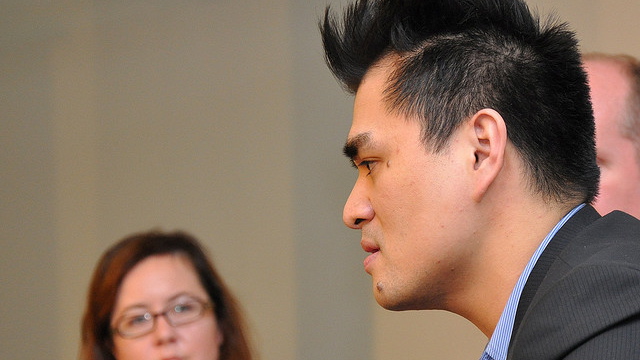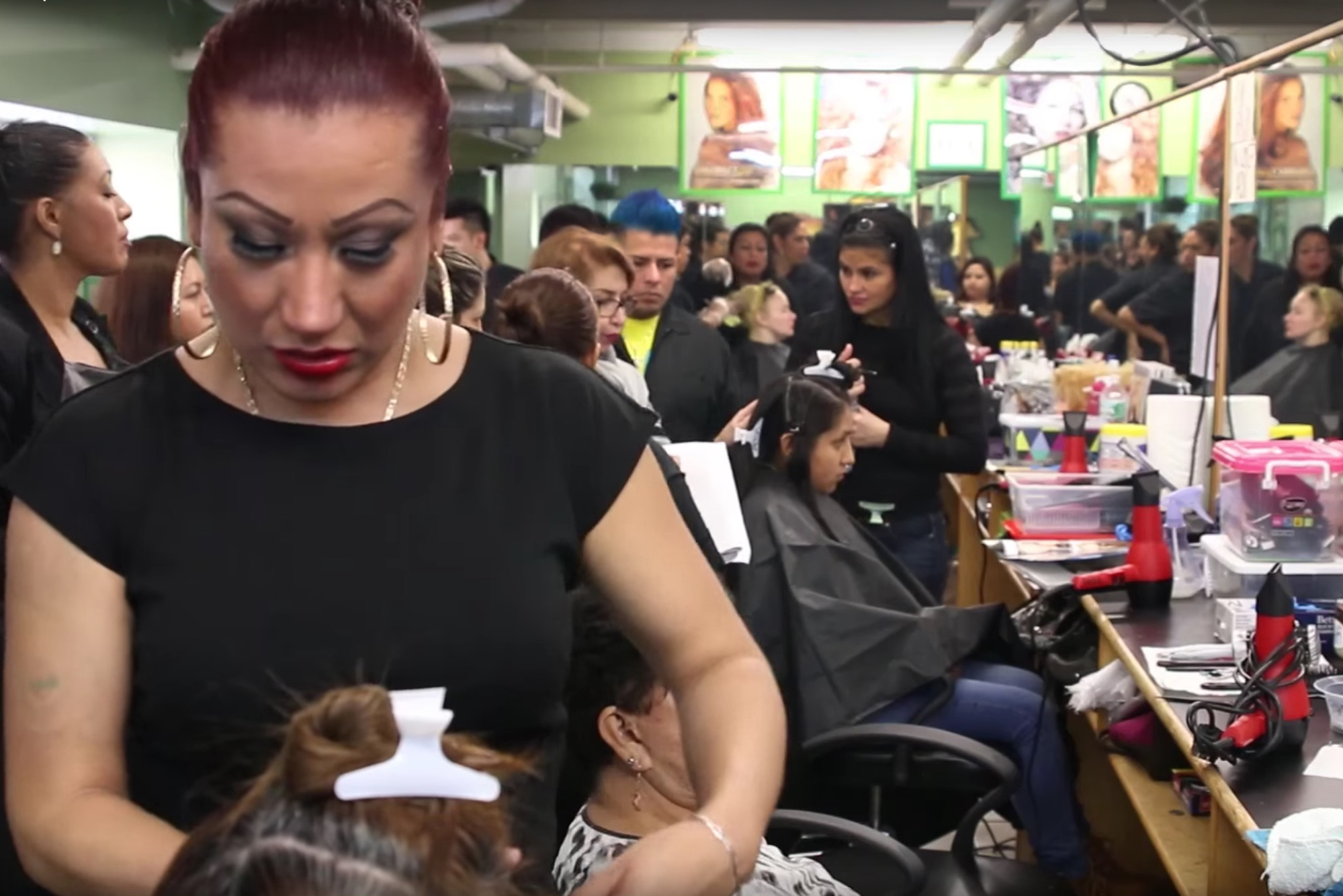
Features, United States
Among Republican Latinas, Support for Donald Trump is Split
November 8, 2016 By Lucía Isabel Seda
NEW YORK — As voters hit the polls today, presidential frontrunners Hillary Clinton and Donald Trump are making their last appeals to voters in an effort to win the race for the White House.
While the Democratic and Republican nominees have been courting the Latino vote in battleground states like Florida, which has already reported a record-number of Latinos casting their ballots during early voting, Trump’s candidacy is fracturing the Republican party. Republican Latinas show the split among voters and provides a window into the future of a party that cannot rally uniformly behind its presidential candidate.
Some Trump supporters, like Aida Zayas, who led the Republican Party of Miami-Dade County for four years and then served as the director of membership and recruitment for the Women’s Republican Club of Miami, Federated, have been encouraging all women—Latino, conservative and liberal—to vote for Trump.
“He is not a political candidate,” Zayas said. “The Clintons are cronies. They bring all of that with them. Trump is a free agent.”
Other Latinas have campaigned for Trump since he clinched the Republican nomination in July. Earlier this year, Denise Galvez and Ileana Garcia co-founded an organization called “Latinas for Trump.” Galvez says she felt that “a lot of people supporting Donald Trump were being silenced.” Since their first event, in which she and Garcia had “more press than actual guests,” they have continued to host events in Miami and grown their network of followers on social media.
The question that they have to answer is this: why should Latinos, and specifically, Latinas, vote for Trump?
Evelyn Pérez-Verdia, founder of Political Pasión and an independent voter, thinks that a profound dislike of Hillary Clinton might explain why Latinas would prefer to vote for Trump, who she describes as “a man who has made derogatory comments about women.”
“Their excuse is that Clinton is worse,” she said of Republican Latinas voting for Trump. She herself has a hard time understanding the appeal of Trump in the eyes of conservative Latinas.
“I have the same question myself. I don’t know, I really don’t get it,” she said.
Others, like Zayas, think that Trump responds to important issues that not just Latinos, but all Americans care about.
“Hispanics in general want the same thing in the country that everyone else does. They want less government intrusion and less taxes,” she said.
Galvez agrees. She believes that there are no specific issues that affect Latinos, but broader ones that affect the entire American electorate. “Mr. Trump,” she says, “is committed to putting Americans first.”
At the policy level, Democratic Councilwoman María Quiñones-Sánchez of Philadelphia thinks that Trump is successfully catering to a particular sector: “those who disagree with immigration.” She thinks that while Trump mentions employment, he is addressing “the kind of employment where Latinos are underrepresented,” like opportunities in business and finance.
Yet, despite Trump’s promises about jobs and taxes, his support among Latino voters continues to wither.
Grace Flores-Hughes, vice chair of a Virginia-based consulting firm and a member of the National Hispanic Advisory Council for Trump, says that Trump’s rhetoric has alienated Latino supporters. She says that his insistence on “building a wall” along the U.S.-Mexico border to keep immigrants out struck fear in the minds of Mexican-Americans, particularly those living in southern Texas.
“A wall is frightening to people,” she said. His proposal has even raised questions about the nature of the wall itself, prompting some to wonder whether it would be a “‘Berlin Wall’ kind of deal.”
As for Trump, she thinks that the majority of Latinos have already made up their minds about the real estate billionaire turned politician. “Every time Hispanics see Donald Trump, they see a wall. They might not even see a human being,” she said.
Until recently, Flores-Hughes was herself a Trump supporter. Along with other prominent members of Trump’s National Hispanic Advisory Council, such as Jacob Monty, she pulled back her endorsement after Trump delivered his immigration speech in Arizona on Aug. 31. The morning after the speech, Monty told POLITICO that Trump’s plan to deport all undocumented immigrants was “not realistic and not compassionate.”
For Flores-Hughes, the call to withdraw her endorsement was a tough one. “It was not an easy decision,” she said.
While Trump’s personal qualities might make Latinos think twice before voting for him, Galvez and Zayas say the media have portrayed Trump in a negative light.
“He is in a constant battle with the media,” said Galvez. She blames news outlets like Telemundo and Univision, saying that they have distorted the news about Trump and contributed to a largely “uninformed” group of Latinos.
Zayas drew on the second presidential debate as another example of the media closing ranks against Trump. She described it as a “three against one” attack, implying that the two debate moderators, Anderson Cooper and Martha Raddatz, had allied themselves with Clinton against Trump.
“I’ve never seen a candidate from our party being attacked on so many fronts,” she said.
To complicate matters further, the release of a video from 2005 in which Trump is heard making crude remarks about women is eroding his support within his own party. Many Republican women, among them former presidential candidate Carly Fiorina and New Hampshire Senator Kelly Ayotte, have publicly withdrawn their support for Trump and, in Fiorina’s case, have even asked him to “step aside” in favor of his running mate, Mike Pence.
Yet Zayas says that Republican leaders have a duty to support the party’s nominee. In her case, Trump was not her first, second or third choice for president, but she nevertheless saw it as her responsibility to stand by him.
“I don’t know what they want to do. They are looking out for their own interests,” she said of those who have withdrawn their support for Trump. “I am extremely disappointed in [current House Speaker] Paul Ryan and the Republican establishment.”
Election Day will act as a crucible for former Trump supporters and ambivalent Latinas. Like Ohio Governor John Kasich, Flores-Hughes does not intend to vote for either Trump or Clinton. Her strategy is still a mystery even to her.
“We won’t know until we get there,” she said.
Councilwoman Quiñones-Sánchez urges conservative Latinas to consider Trump’s remarks about kissing and groping women without their consent.
“The question that I would have for those women is: if this was her daughter, their sister or their mother, would they still vote for Trump?,” she said.
Women like Ana Navarro, a lifelong Republican and political commentator, thought hard about Trump’s comments on women, as well as his stance on immigration, when she withdrew her support of Trump. Yet it wasn’t until yesterday when she wrote in an op-ed for CNN that she had voted for Hillary Clinton and deliberately cast her vote “against Donald Trump.”
Navarro’s rejection of Trump is what Quiñones-Sanchez wishes will happen as Republican Latinas enter the polls today. She hopes that when they go inside the voting booths they realize: “No, I can’t do it.”
About Lucía Isabel Seda
Lucía Seda is a Master’s student in Global Journalism and French Studies at New York University. A graduate of Brown University, she worked as an English and Creative Writing teacher at a public high school in Brooklyn for four years. She currently teaches a Saturday writing class to high school sophomores at Legal Outreach, an education nonprofit in Queens.




